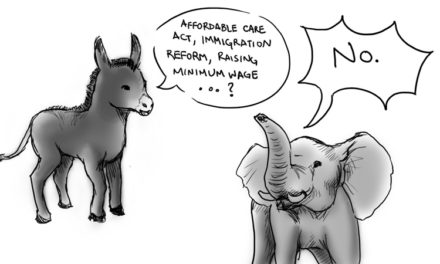“So, you’re getting a degree in the liberal arts? At least you’re steering clear of … oh, no, don’t tell me you’re thinking about a minor in … the humanities? Oh, no.”
This isn’t a particularly uncommon conversation. Whether one is telling family members what they’re interested in studying, or introducing themselves to someone at a social gathering, a student of the liberal arts or humanities can feel disregarded. Articles and essays written in defense of the fields are just that: defenses. They cede the high ground to those in STEM (Sciences, Technology, Engineering, Mathematics) fields or on pre-professional tracks.
And, at a school such as Emory, renowned for its schools of Law, Business, Health and so on, it is easy to feel surrounded by pre-professionals who have their lives on track towards a secure future, as opposed to your vague plans to ‘travel a bit’ before ‘maybe going to … graduate school, or something.’
But I empathize. I’m majoring in creative writing and philosophy. But I don’t want to defend the liberal arts or dismiss the STEM and pre-professional fields. I just want to provide a thought or two and perhaps a locus of comfort.
First thing, though, is to give credit where it is due. There are people walking by you as you read this in the DUC who are learning, or will be learning, how to cure the human body, brilliantly conduct business, navigate the subtleties of international law or make bio-robots. How does that not amaze you? Let’s turn our noses away from the sky and look our quote-unquote ‘opponents’ in the eye and find out what we have to learn from them. If there’s nothing there, there’s nothing there, but that’s as likely to be the case in Callaway as in Goizueta.
With that in mind, let’s press on. What you are doing is important, I promise. Now, the word of a long-haired editorialist counts for only so much, but go with it. We’re not the only ones learning about important things thought and done by humans – tell me how law and medicine and so on isn’t stunning – but we are some of the people doing amazing things. We are helping to preserve the memory of humanity’s great projects. Literature, philosophy, language, history. More so, our work contributes, even in small drops, to the oceans of human work.
You get the point. We are doing things that are meaningful because we are humans and these are things that affect everyone in some way.
On another note, I think that much of the shame, whether from those around us or springing out of an unfortunate academic self-loathing, that comes with the liberal arts and humanities really hit a new stride with the recession. If you’re an undergraduate, you probably were in high school when the recession really hit hard. I have a friend, a graduate student, who finished a BA in religion in 2004 and had three job offers. The very notion of having those sorts of opportunities nowadays would be brushed off with a chuckle and an “Oh, aren’t you funny” attitude.
And, no, the recession isn’t going to magically reverse itself once you leave campus, diploma in hand. But, you have to recognize that graduating from college, especially one such as Emory, gives you a few distinct advantages. Take it easy, because the horrifying stress of beginning our proto-adult lives will still be there to fret over once it’s time to consider that sort of thing.
Which is all to say: don’t wrestle yourself into anxiety about the thing that is the “Liberal Arts & Humanities.” You’re doing good things, you can’t convince those who degrade your studies (to your face, no less), and you can’t do all that much about the economy, anyway. It’s a bitter medicine, but a medicine all the same.
Rhett Henry is a College Junior from Lawrenceville, Ga.
The Emory Wheel was founded in 1919 and is currently the only independent, student-run newspaper of Emory University. The Wheel publishes weekly on Wednesdays during the academic year, except during University holidays and scheduled publication intermissions.
The Wheel is financially and editorially independent from the University. All of its content is generated by the Wheel’s more than 100 student staff members and contributing writers, and its printing costs are covered by profits from self-generated advertising sales.



